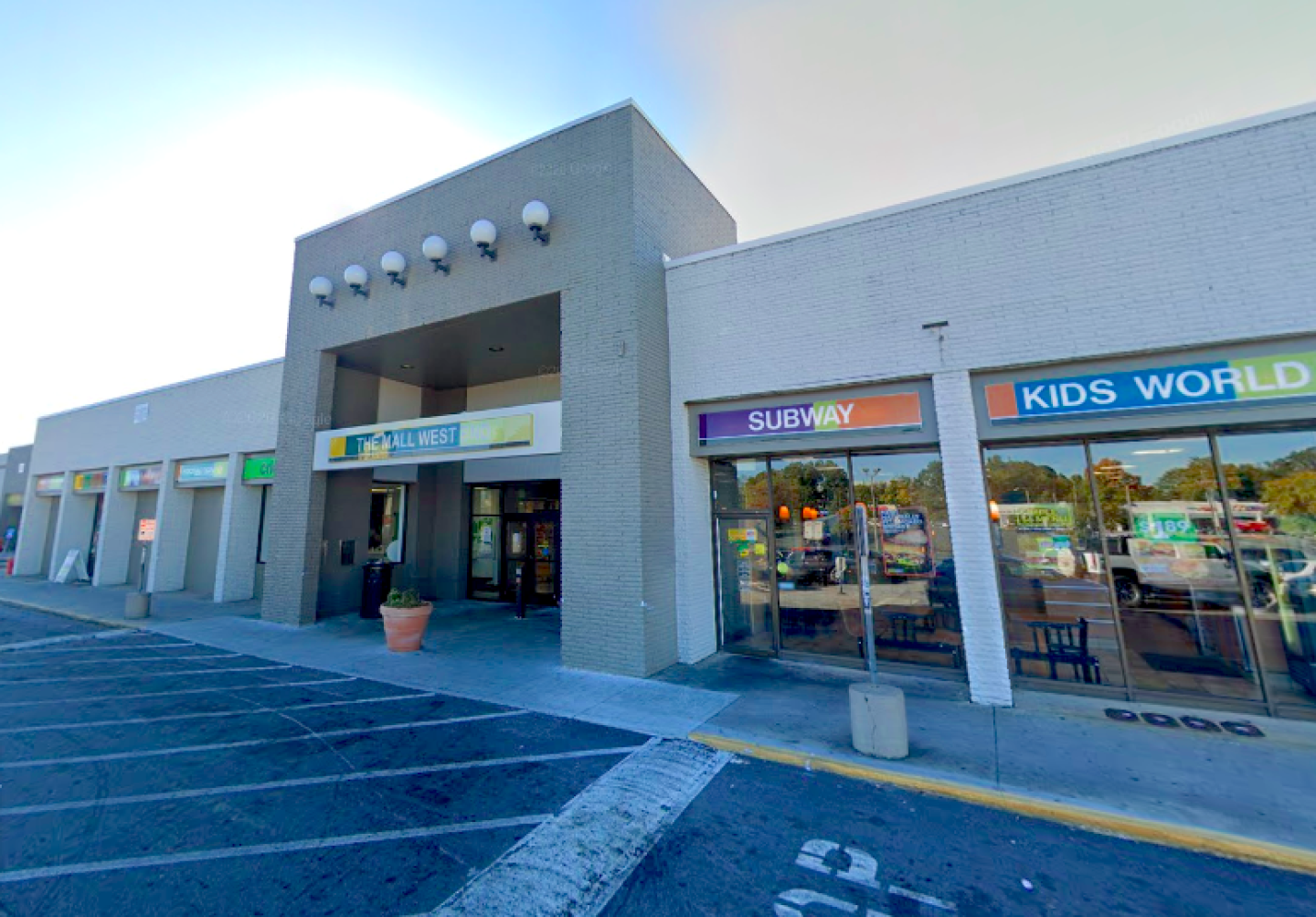A recent announcement from the Atlanta city government has once again sparked conversation around the redevelopment of a once-vibrant mall in Atlanta’s historic West End neighborhood.
Focus on development in the West End heightened in October 2024, when the city and its nonprofit entity—Atlanta Urban Development Corporation (AUDC or, for short, AUD)—along with Atlanta Beltline Inc., announced they had acquired the Mall West End. The city is partnering with New York–based developers BRP Companies and Prusik Group to transform the 1970s-vintage West End fixture into a $450 million, 1.7 million-square-foot (158,000 sq m) mixed-use community with retail and residential uses, including a large component of affordable housing.
Try, try again
Atlanta’s West End neighborhood has a rich history, with origins as a frontier outpost in the 1830s. The area is home to four historically Black colleges and universities (HBCUs) that make up the Atlanta University Center (AUC)—Clark Atlanta University, Morehouse College, Morehouse School of Medicine, and Spelman College.
The Mall West End was developed in 1974, a few miles southwest of downtown Atlanta, on a prime site along the southern side of Interstate 20. The mall’s prime location near MARTA’s West End Station, Atlanta University Center, and the Beltline’s Westside trail has attracted some robust redevelopment interest in recent years, but none of the plans has panned out thus far.
In 2019, a $400 million redevelopment proposal by Elevator City Partners included a master plan by architectural firm Gensler for 1.4 million square feet (130,000 sq m) of mixed-use space with public green spaces, retail, residential, and office. That project was formally abandoned in 2020.
New York–based powerhouse developer Tishman Speyer then contracted to purchase the property, amid plans to invest $300 million in the redevelopment, but ultimately decided in August 2021 not to proceed.
The latest proposal marks BRP’s second attempt at redeveloping the mall. In September 2023, New York–based Prusik Group and BRP canceled a purchase contract on the property. Their plans Fhad called for splitting the property into four blocks; creating two new streets; and adding as much as 1.5 million square feet (139,000 sq m) of new construction, as many as 900 mixed-income apartments, and up to 250,000 square feet (23,225 sq m) of necessity-based retail.
Mixed-uses
The current plan is to include the mall redevelopment as part of three projects that will add nearly 350 affordable housing units for Atlanta residents, with each project making at least 20 percent of its units affordable for those who earn 50 percent of area median income (AMI) and another 10 percent for those who earn up to 80 percent of AMI.
“This is a long-awaited new era for the West End,” said Atlanta Mayor Andre Dickens in a statement. “This is not just a redevelopment of the Mall West End—this is fulfilling a commitment to a community. Our administration is dedicated to creating affordable housing and vibrant business spaces that respect and preserve the rich legacy of this historic neighborhood. Together with our partners, we will work to ensure [that] the heart and soul of the West End continues to thrive under our stewardship.”
Plans call for the redeveloped mall to feature 125,000 square feet (11,150 sq m) of retail with a much-needed grocery store, a fitness center, a food-and-beverage component, and local boutiques; 900 mixed-income rental units, with 70 percent workforce housing, 20 percent affordable at 50 percent of AMI, and 10 percent at 80 percent of AMI for 271 total affordable housing units; 150 beds of student housing to appeal to nearby schools; a 150-room hotel; 12,000 square feet (1,115 sq m) of medical office space; and community amenities including a public green space, fitness center, pool, resident lounge, and bike parking, all according to the city’s announcement.
BRP Companies was founded in 1998, and it oversees a commercial property portfolio totaling more than 15.7 million square feet (1.46 million sq m). “We are honored to partner with the City of Atlanta, AUD, Atlanta Beltline, Inc. and the West End community on this transformative project,” said Meredith Marshall, cofounder and managing partner of BRP via a statement.
The Prusik Group, founded in 2007 by S. Andrew Katz and Rohan Mehra, focuses on the development and repositioning of retail real estate assets throughout the East Coast region.
“With affordable housing at the forefront, the West End development represents a unique opportunity to revitalize and reinvest in the West End community, creating a more vibrant, connected, and equitable neighborhood,” says John Majors, CEO of the AUDC. Mayor Dickens’ Affordable Housing Strike Force stemmed from the AUDC in 2023 with a mission to incentivize the development of mixed-income communities that include affordable housing units.
Why this time may be different
Despite the mall’s troubled history, the notion of redeveloping the site has a lot of merit to many locals. “It is good to see someone getting involved, and this time around it seems as though it has more legs,” says Jonathan Koes, research manager with Colliers in Atlanta.
“It is well-positioned, working with AUD,” says Koes. “It is a relatively new nonprofit, but [one] really focused on building affordable housing, so I think that is going to be the main component that moves this [project] forward. Market fundamentals and economics over the last couple of years are really what led to those [earlier] proposals’ struggling. You need to have buy-in from the community, and I think that is definitely something that this proposal has put at the forefront.”
Daniel Duque, an associate with CBRE’s retail services group in Atlanta, says, “We are excited to see West End getting redeveloped and look forward to seeing this project come to fruition. This market has been historically underserved from a retail standpoint, and revitalizing the mall will bring cool and exciting new tenants to the area. West End is close to all major submarkets in Atlanta, and we’re optimistic that great retail will follow after the redevelopment.”
Others are more skeptical. “It’s a great piece of land encumbered by an old mall,” says George Banks, founder of Revel, an Atlanta-based retail and mixed-use development firm. Banks was an original investor in the Krog Street Market, which opened in 2014 on Atlanta’s east side as the first food hall in the Southeast. “Arguably, it’s hard to make retail work, given the costs to build and the rents you can get. It’s hard to make any deal work in 2024.”
Observers agree that the redevelopment of the Mall West End with more retail options will reshape the entire area. “West End has strong density but not enough retail,” says Duque. “This market is also a food desert and lacks service-based tenants . . . across the board. The nearby universities, as well as local residents, would be thrilled to see some of these retail needs [addressed].”
The mall redevelopment is in its early stages of planning, with construction expected to begin in 2025, according to the city. “Throughout the redevelopment, AUD and BRP will engage residents, legacy business owners, and other stakeholders through various channels, such as town hall meetings, surveys, and public forums, to share their insights, participate in decision-making, and foster an inclusive and collaborative redevelopment approach that reflects the community’s aspirations,” Mayor Dickens says in a statement.
The momentum of Lee + White
The popularity of a converted 22-acre (9 ha) warehouse district called Lee + White—which opened in 2019, just three blocks south of the Mall West End—provided a potential catalyst to the mall redevelopment and became a model for what is possible in the neighborhood.
When co-investors Ackerman & Co. and MDH Partners purchased Lee + White in 2019, the mixed-use property had already become a popular destination for the breweries and retailers that opened in the first phase of the project. The ownership partners have continued the redevelopment of the former “Warehouse Row” with the addition of a 19-vendor food hall, loft offices, a container retail village, and a central gathering space called the Great Lawn.
An eclectic mix of eateries opened in the food hall, and Lee + White also emerged as a business hub by attracting high-tech innovators Carbice Inc., a nanotechnology company, and renewable energy provider JTEC Energy, as well as a mix of other businesses and services, including a new Grady Health neighborhood center, KIPP Atlanta Schools, Team Rehabilitation Physical Therapy, and Triumph Motorcycles.
“The opening of the Atlanta Beltline Westside trail was a game-changer for the West End neighborhood and this project,” says Evan Ziegler, president of investments at Ackerman & Co.
Lee + White has a half mile of Beltline frontage and four direct access points to the trail. “We knew the opening of the trail in this area would also provide a significant boost to development and help make our project more appealing to a wide range of tenants and visitors,” Ziegler says. “We also knew that we could add value to our investment while serving the needs of the surrounding community by diversifying the mix of users at Lee + White.”
Development momentum is building to the south and west of downtown Atlanta, which includes such projects as Murphy Crossing, The Met, and Pittsburgh Yards, according to Leo Wiener, president of Ackerman Retail. “When you talk to residents [of] the West End, you find that they’re excited to have a project like Lee + White in their neighborhood,” says Wiener. “South Atlanta, including the West End, has been underserved by retail and other commercial development, but with projects like this [one], that’s changed dramatically.”
Further reading:


![Atlanta University Center[1].jpg](https://cdn-ul.uli.org/dims4/default/fc19259/2147483647/strip/true/crop/1500x845+0+145/resize/1000x563!/quality/90/?url=https%3A%2F%2Fk2-prod-uli.s3.us-east-1.amazonaws.com%2Fbrightspot%2F44%2Fab%2F3603e1c34d1f8d642dd9db5fdef8%2Fatlanta-university-center1.jpg)






